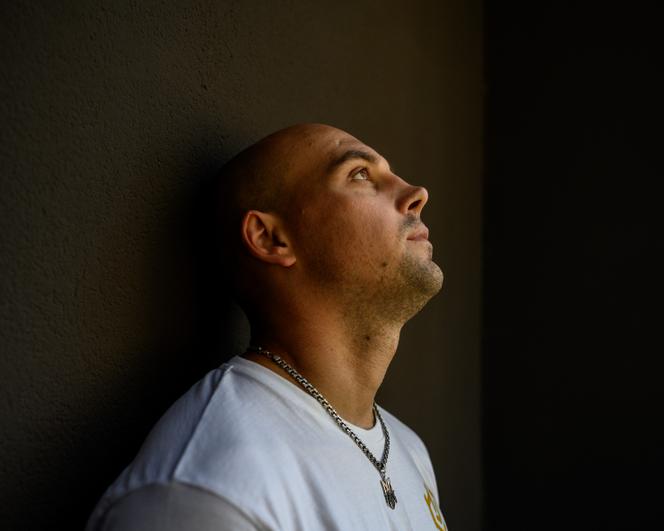


Novozybkov, the "kommandantur" in Donetsk, an internment in Mordovia: The list of Russian prisons where naval infantryman Yulian Pylepei was held between April 14, 2022, and his release on September 13, 2024, could almost be charted just by tracing his scars. On his forehead, "a dog bite, in Kursk prison," explained the 30-year-old Ukrainian. "The broken nose, the fractured leg, that happened there too." The head injuries are invisible, but they date from a bit earlier, as do the white lines criss-crossing his forearms, marks left by electric shocks. If your gaze lingers on his black silicone tactical ring, Pylepei feels compelled to clarify: "In Olenivka, they took my wedding ring. I tried to stop them by saying: 'That's sacred!' The answer: 'Give it to us or we'll cut your finger off.'"
"For a long time, I kept repeating, 'A marine never cries.' But when, on the day of my release, they handed me a phone and I heard my wife's voice, I cried like a child," the former prisoner told Le Monde. We met him in Lviv, at the foot of his apartment building (his wife dislikes hearing him recount his torture), after a psychiatrist's appointment. Broad-shouldered, a trident pendant on a white T-shirt, he explained that he now makes a point of welcoming other prisoners of war when they return. "We talk together about the prisons they passed through, the inmates they met and many other things. I understand them better than anyone, and vice versa."
You have 73.88% of this article left to read. The rest is for subscribers only.
